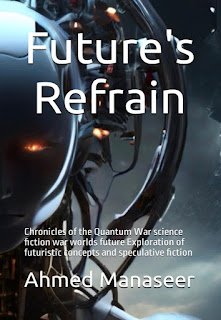Exploring the Infinite: A Journey into the Realm of Science Fiction Books
Science fiction, often abbreviated as sci-fi, stands as a genre that has fueled the imaginations of readers for centuries. This literary realm is a playground for the mind, where the laws of reality bend, and the infinite possibilities of the universe unfold. From the classic tales of H.G. Wells to the futuristic visions of contemporary authors, science fiction books have continued to captivate audiences, challenging perceptions and transporting readers to uncharted territories of the mind.
The Genesis of Sci-Fi:
The roots of science fiction can be traced back to ancient myths and tales that hinted at extraordinary realms beyond our comprehension. However, it was during the 19th century that science fiction as a distinct genre began to take shape. Visionaries like Jules Verne and Mary Shelley paved the way with works such as "Twenty Thousand Leagues Under the Sea" and "Frankenstein," introducing readers to fantastical worlds and groundbreaking ideas.
Golden Age Classics:
The Golden Age of Science Fiction, roughly spanning the mid-20th century, witnessed the emergence of iconic authors who laid the foundation for the genre's enduring popularity. Isaac Asimov, Arthur C. Clarke, and Robert A. Heinlein became pioneers, exploring themes of artificial intelligence, space exploration, and the potential futures of humanity. Asimov's "Foundation" series, Clarke's "2001: A Space Odyssey," and Heinlein's "Stranger in a Strange Land" are hailed as classics that shaped the genre's landscape.
Dystopian Universes and Alternate Realities:
In the latter half of the 20th century, the genre expanded to include explorations of dystopian societies and alternate realities. Philip K. Dick, with works like "Do Androids Dream of Electric Sheep?" (the inspiration for the film "Blade Runner"), delved into the nature of reality and identity. Ray Bradbury's "Fahrenheit 451" painted a haunting picture of a world without books, while Ursula K. Le Guin's "The Left Hand of Darkness" challenged conventional ideas of gender and sexuality.
New Wave and Cyberpunk:
The 1960s and '70s brought about the New Wave movement, characterized by experimental narratives and a focus on social issues. Authors like Harlan Ellison and Samuel R. Delany pushed the boundaries of traditional storytelling. The '80s introduced cyberpunk, a subgenre marked by a blend of high-tech and low-life. William Gibson's "Neuromancer" became a seminal work, exploring the interconnectedness of humanity and technology.
Contemporary Explorations:
As we step into the 21st century, science fiction continues to evolve, reflecting the ever-changing landscape of our world. Neal Stephenson's "Snow Crash" explores a virtual reality-dominated future, while Octavia Butler's "Parable of the Sower" envisions a society grappling with environmental collapse. Contemporary authors like Liu Cixin ("The Three-Body Problem") and N.K. Jemisin ("The Fifth Season") bring fresh perspectives, blending cultural diversity with speculative storytelling.
Science Fiction in Popular Culture:
Beyond the realm of literature, science fiction has permeated popular culture, influencing films, television, and even scientific advancements. Blockbuster franchises like "Star Wars" and "Star Trek" have become cultural phenomena, creating immersive universes that resonate across generations. Science fiction not only entertains but also serves as a mirror to our society, offering reflections on the ethical dilemmas posed by advancing technology and the consequences of our collective actions.
The Endless Possibilities:
What sets science fiction apart is its limitless scope. It invites readers to contemplate the profound questions of existence, morality, and the potential trajectories of human evolution. The genre serves as a vehicle for exploring not only the outer reaches of the cosmos but also the depths of the human psyche.
In conclusion, science fiction books are more than just tales of space exploration and futuristic technologies. They are portals to the unknown, windows into alternate realities, and mirrors reflecting the complexities of the human condition. As we journey through the annals of science fiction literature, we embark on a quest to unravel the mysteries of the universe and, in doing so, discover more about ourselves. So, pick up a sci-fi novel, and let your imagination soar to galaxies far, far away. The adventure awaits!
You can Find my below book on the website ☺
